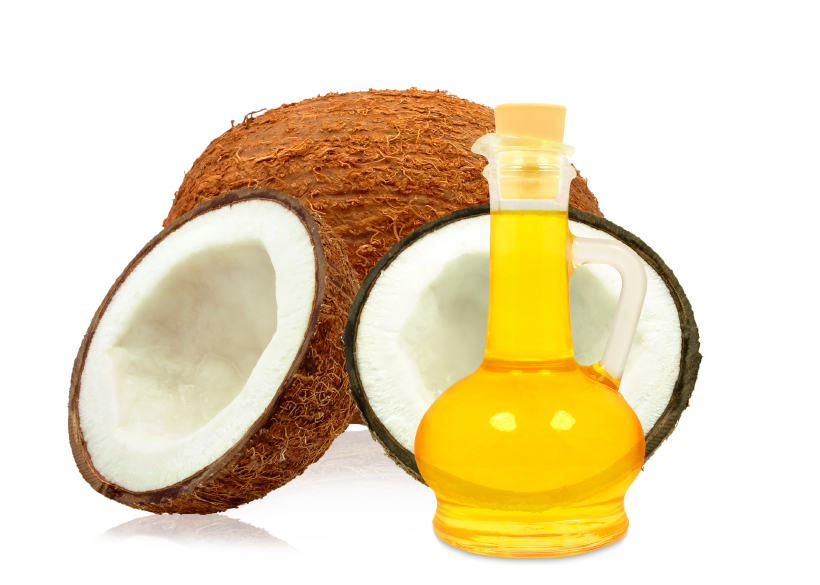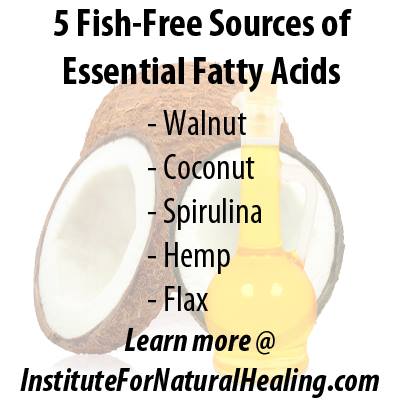If you’ve been reading Health Watch, you know how important it is to eat the right fats. Obviously we aren’t talking about trans and hydrogenated fats. We mean essential fatty acids (EFAs) that lower inflammation, bad cholesterol, and can add years to your life.
One of the most popular—and convenient—sources of these healthy fats is fish oil. And as great as fish oil is, some people avoid it. Some can’t stand the fishy burps it sometimes causes. Others might have seafood allergies. And of course it isn’t an option for vegans. Thankfully there are options.
Here are five of the best fish-free sources of EFAs.
1. Walnut: Walnuts are packed with omega-3 fatty acids. It’s this fat content that raises your good cholesterol and improves blood flow. They also prevent heart disease. And talk about effective… At one point, the FDA wanted to call walnuts a heart drug.
Walnuts are rich in alpha-linolenic acid (ALA). Your body converts ALA into eicosapentaenoic acid (EPA). It’s one of the fatty acids that make fish oil so effective at fighting inflammation.1 But walnuts also contain a less common form of vitamin E that helps protect against heart disease.2 You can eat them raw. Or try organic walnut oil which you’ll find in many supermarkets.
2. Coconut: Coconut oil is a saturated fat that promotes heart health, weight loss, and increased energy levels. That’s because it’s rich in medium-chain triglycerides (MCTs). They’re a fast-digesting source of clean energy. MCTs make coconut oil a powerful weapon in the fight against Alzheimer’s. As a bonus, it’s antiviral, antibacterial, and anti-inflammatory.
For people who like the taste, a spoonful of cold-pressed, organic, extra-virgin coconut oil is quick and easy. You can also use it to add fat and tropical flavor to a salad or smoothie. And if you aren’t a fan? Coconut oil also comes in pills. The flavor isn’t as intense.
3. Spirulina: If you’re looking for fatty acids, not just any algae will do. That’s where spirulina comes in. It doesn’t contain EPA like fish oil… But it’s high in ALA.3 Remember, your body converts this to EPA. It’s what makes spirulina so effective at lowering inflammation—and blood pressure. One study found that spirulina outperforms 14 of Big Pharma’s ACE inhibitors.
You can get the EFAs of spirulina and other algae in vegetarian omega-3 supplements. There’s a variety to choose from online and in natural health stores. Just avoid the ones with modified filler ingredients and artificial sweeteners.
4. Hemp: Forget all the controversy… Hemp is rich in ALA and protein. It’s also full of omega-3 and omega-6 fatty acids. You see, the ratio between them is even more important than the actual amounts of each fat. And that’s where hemp really shines. Thanks to its ideal omega-6 to omega-3 ratio, it can decrease your risk of death from heart disease by 70 percent.4
Today, hemp is illegal to grow in the United States. But it’s not illegal to import. You can find Canadian hemp seeds, oils, protein powders, butters, and dressings in most high-end food stores. If you don’t come across them locally, check online.
5. Flax: These seeds are one of the richest sources of non-fish omega-3s you can find.5 Their high levels of ALA and other EFAs help fight heart disease. One study even found that adding flax to baked goods helped lower blood pressure by 15 points in six months. But we don’t recommend you get your flax from bagels and muffins.
Flaxseed oil is easy to find in stores. You can use it as the base for a homemade salad dressing. It’s also a good way to add extra omega-3s to a protein shake. You can also snack on flaxseeds by themselves. But throwing them in a salad will give it texture, taste, and vital fats.
Don’t get us a wrong, fish oil is an excellent source of fatty acids. But it may not be an option for you. Or maybe you just don’t like the taste. You could even be looking to simply change things up a little bit. Whatever the case, these are five other sources of EFAs that you’ll want to try.
Like this Article? Forward this article here or Share on Facebook.
References:
1http://umm.edu/health/medical/altmed/supplement/alphalinolenic-acid
2http://www.whfoods.com/genpage.php?tname=foodspice&dbid=99
3http://www.omega-3-efa.com/algae-supplements.html
4http://www.ncbi.nlm.nih.gov/pubmed/12442909
5http://www.health.harvard.edu/fhg/updates/Why-not-flaxseed-oil.shtml


